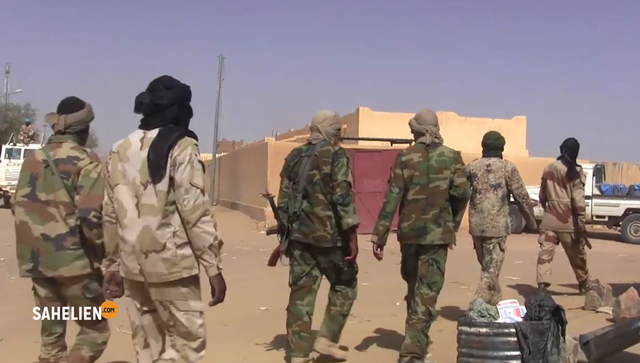Disarmament, demobilisation and reintegration are a priority if peace is to be achieved.
Mali is experiencing a rise in violence, and little is happening in the way of peaceful resolutions. The disarmament, demobilisation and reintegration (DDR) process remains vital, especially for those living in the north. There are political and security challenges to conducting DDR in Mali, but it must be a priority for peace to come about.
DDR is included in the 2013 Preliminary Agreement to the Presidential Election and Inclusive Peace Talks, and the 2015 Agreement on Peace and Reconciliation in Mali from the Algiers process. But few major advances have been made to implement the 2015 agreement.
In Mali, the DDR process is a result of successive peace agreements, and includes combatants of armed groups, violent extremist groups and self-defence movements – provided they renounce the use of violence. This approach shows the complexity presented by the presence of several armed movements that have not signed the peace agreements.
Implementing DDR in an environment dominated by unpredictable attacks and attackers is difficult
DDR so far has entailed creating a national commission and constructing eight reception sites for combatants spread between Timbuktu, Gao, Menaka and Kidal. However armed groups are still reluctant to comply and haven’t provided lists of their fighters. The Operational Coordination Mechanism, tasked with securing the various sites, is present only in Gao – the units for Timbuktu, Menaka and Kidal are not yet functional.
There are many reasons for the slow progress; mostly the lack of trust between signatories. Armed groups that have signed up often accuse the national authorities of insufficient progress on political and economic issues, and use DDR to exert pressure. For its part, the government seems reluctant to press ahead without tangible progress on security measures like cantonment and installing the Operational Coordination Mechanism units.
The government must also deal with public opinion that is hostile to integrating fighters with questionable loyalties into national structures. The army, which lost 100 soldiers in atrocious circumstances in the 2012 Aguelhok massacre, also needs to be won over.
This mistrust has historical roots. Mali is on its fifth peace agreement since the beginning of the 1990s. Past failures help understand current difficulties, particularly with regard to DDR. Some of those involved in the early agreements still play an active role in the peace process, either as members of armed groups or on behalf of the Malian government.
International actors can exert pressure, including through sanctions, to unlock the DDR process
The persistence of the terrorist threat also raises concerns about the feasibility of DDR. Violent extremist groups remain active, as shown by the January 2017 attack on the Operational Coordination Mechanism unit in Gao, the deadliest in the country; and recent assaults in January 2018 in the north and centre, with around 50 civilian and military deaths reported.
This is a blunt reminder of how difficult it is to implement DDR in a complex environment dominated by unpredictable attacks and attackers. However this is not an excuse to indefinitely postpone an essential step of the peace agreement. Joint patrols planned under the Operational Coordination Mechanism must play their role and provide security.
Meanwhile, the consequences of ineffective disarmament, demobilisation and reintegration are numerous and keep the country in a spiral of violence that undermines social cohesion. Armed groups are often incapable of providing for their fighters, and some resort to brutal methods against civilians in order to meet their needs.
‘The other day, we were coming back from the weekly fair when a group of armed men stopped us, and after being summoned, their leader ordered us to empty our pockets and give them our belongings. One of us refused to comply and was subsequently shot in the foot. As long as the DDR is not effective, there will be no peace in Mali,’ one young man reported.
An arms race at community level creates a climate of suspicion that obstructs national reconciliation
The story of this man, from the village of I-n-Tillit in the Gao region, is not an isolated case. It shows the danger faced by hundreds of people in the north and centre of the country because of the proliferation of armed groups and the widespread availability of weapons. Civilians attempt to arm themselves by, for example, setting up self-defence movements. This arms race instals in communities a climate of suspicion that obstructs national reconciliation.
Mali is entering a crucial phase with a focus on elections, including the presidential election in July. The lack of significant progress in implementing the 2015 peace agreement, especially DDR, puts the future of the country at risk. Drawing the public into the process is a priority if the country is to be prevented from relapsing.
At the 23rd meeting of the agreement’s monitoring committee on 15 and 16 January, new energy was injected into the peace process. A timetable with concrete steps for implementing provisions on disarmament, demobilisation and reintegration was adopted. This new impetus must be supported by international actors, who can use different means of pressure, including the sanctions adopted last September, to unlock the DDR process.
Ibrahim Maïga, Researcher, ISS Dakar (based in Bamako)
This article was first published on the website of the Institute for security studies

